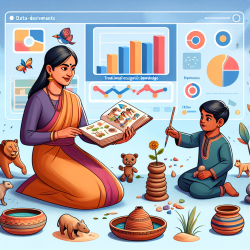Introduction to Traditional Ecological Knowledge (TEK)
Traditional Ecological Knowledge (TEK) is a rich tapestry of insights and practices developed by Indigenous communities over generations. It encompasses the relationships between people and the natural environment, providing a holistic understanding of ecological systems. This knowledge is increasingly recognized for its potential to enhance environmental health sciences and biomedical research. For practitioners in speech-language pathology, integrating TEK can lead to innovative approaches in child development, particularly in creating culturally relevant and effective interventions.
TEK and Its Relevance to Child Development
TEK is not merely an adjunct to Western scientific methods; it offers a comprehensive framework that acknowledges the interconnectedness of environmental, social, and cultural factors. For speech-language pathologists, this means recognizing the importance of cultural context in language acquisition and cognitive development. By understanding the cultural narratives and practices of Indigenous communities, practitioners can tailor interventions that resonate with children's lived experiences.
Implementing TEK in Practice
Incorporating TEK into speech-language pathology practice involves several key steps:
- Engage with Indigenous Communities: Building relationships with local Indigenous communities is crucial. This involves listening to elders and community leaders to understand the cultural nuances that influence child development.
- Integrate Cultural Narratives: Use storytelling, arts, and traditional practices as tools in therapy sessions. These elements can enhance language skills and cognitive development by providing familiar and meaningful contexts for learning.
- Collaborate with Multidisciplinary Teams: Work alongside environmental scientists, educators, and community health workers to develop comprehensive intervention strategies that incorporate TEK principles.
Encouraging Further Research
The integration of TEK into speech-language pathology is an emerging field that requires further exploration. Practitioners are encouraged to engage in research that examines the efficacy of TEK-based interventions. This research should focus on long-term outcomes, such as language proficiency, cognitive development, and cultural identity reinforcement.
Conclusion
By embracing TEK, speech-language pathologists can create more culturally responsive and effective interventions for children. This approach not only supports language and cognitive development but also fosters a deeper connection to cultural heritage and identity. As practitioners, it is our responsibility to continue exploring and integrating diverse knowledge systems to enhance the well-being of the children we serve.
To read the original research paper, please follow this link: The Value of Traditional Ecological Knowledge for the Environmental Health Sciences and Biomedical Research.










